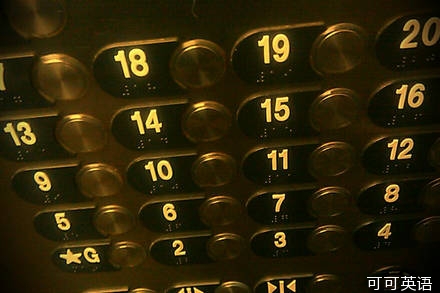Today's program is about an effect that not only have we all witnessed, but have participated in. Haven't we all been on an elevator and noticed that just about everyone stops talking when they get on? Why do we do that? You can be having a perfectly pleasant conversation with someone, and as soon as you get on an elevator, you just feel like you'd better shut up. Then, as soon as the doors open, everyone resumes conversation.
今天的節目是關于一個我們不僅曾經目睹過,而且親身體驗過的現象。當我們都在電梯上的時候,你有沒有注意過電梯上升時所有人都停止了說話?為什么我們會這么做?你或許正在和某人進行非常愉快的交談,而當你走上電梯的時候,你立刻感覺到你最好閉上嘴。隨后,當電梯門打開的時候,大家又恢復了交談。
Primatologists, or people who study primate behavior, have a term for this. It's called the “elevator effect,” though it doesn't occur only on elevators. It happens whenever a group of primates, like humans, is brought into a situation where escape is temporarily impossible.
研究靈長類行為的靈長類動物學家有一個術語來描述這個現象。它被稱之為“電梯效應”,盡管它不僅僅發生在電梯上。它常常發生在一群靈長類動物身上,比如人類,當他們被帶入一個暫時不可能逃脫的位置時。
It's thought to be a kind of safety mechanism: as long as nobody talks, nobody is going to risk getting in a fight when there's no way to spread out. The elevator effect keeps a lid on potential problems before they start.
這被認為是一種安全機制:只要沒有人說話,就不會有人在無處可逃時試圖冒險卷入一場戰斗。電梯效應使得潛在的問題在爆發之前得到抑制。

Even though they rarely if ever ride elevators, chimpanzees demonstrate the elevator effect as well. When chimps are temporarily crowded together into small areas, they will minimize their vocalizations–that is, nobody speaks–and avoid eye contact. The amount of scratching the chimps do, however, goes up.
盡管黑猩猩幾乎從來不乘坐電梯,它們也同樣驗證了電梯效應。當黑猩猩們暫時擁擠在一個很小的空間時,它們會使它們的聲音最小化--也就是說,沒人說話--并且避免眼神的接觸。然而,黑猩猩抓撓的次數卻增多。
Since scratching is a sign of stress in chimps, we can imagine what they are feeling: something like what we feel in a crowded elevator, with everybody carefully staring at the lighted numbers and no one saying a thing. I haven't noticed if we scratch more.
因為抓撓是黑猩猩感受到壓力的標志,我們可以想象它們的感受:就像我們在擁擠的電梯中的感受一樣,每個人都小心的盯著亮燈的數字,沒有人說話。我從未注意過我們是否也撓來撓去的。












